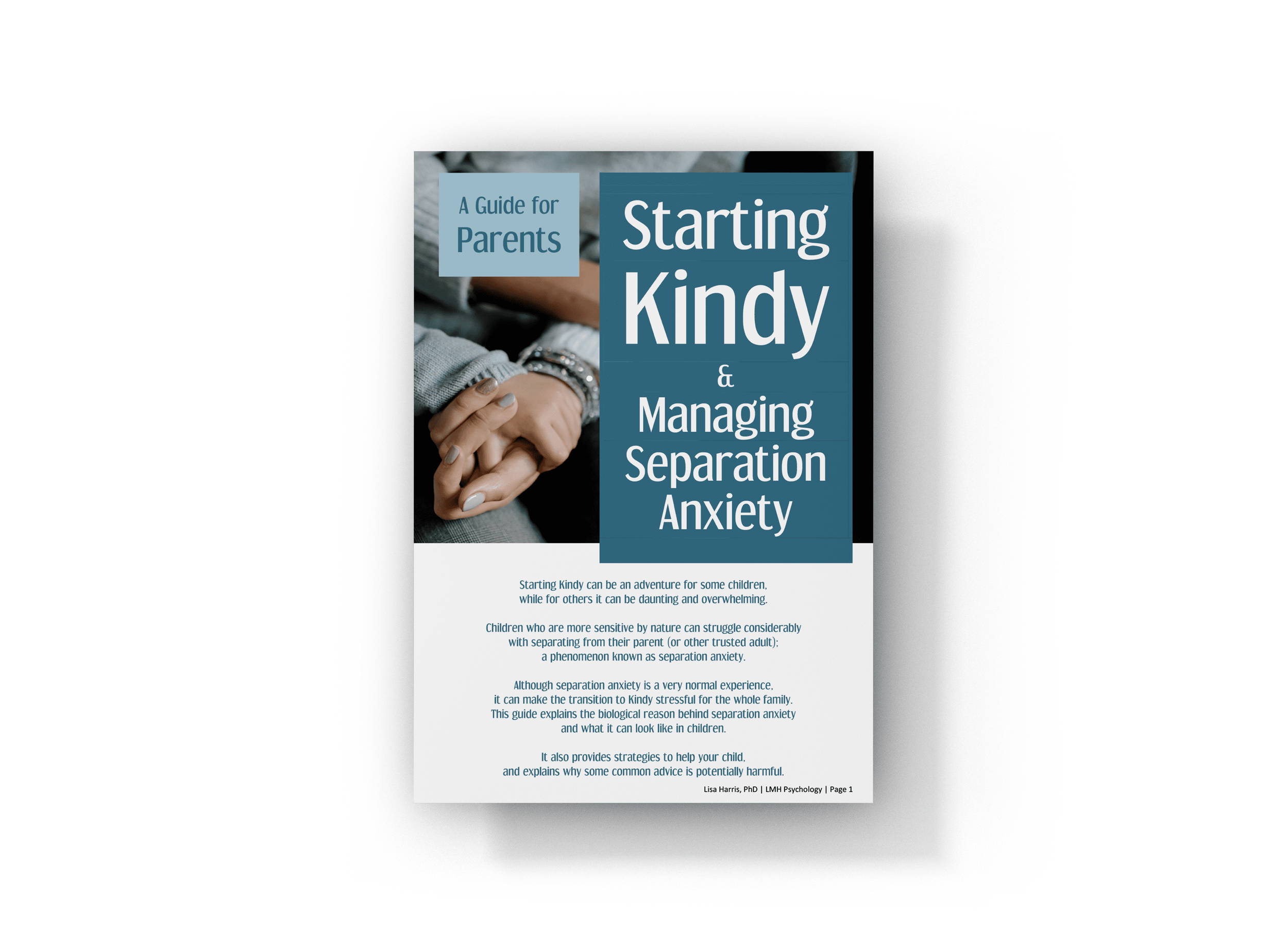
Starting Kindy
Advice, resources, tips and templates for parents and teachers.
My Story
If you’re a parent and you’re here then you probably have a little one about to start Kindy and you’re worried about how they’ll adjust. If so then you’re in the right place.
I get it. It wasn’t so long ago that this was me. I’m the mother of a highly sensitive and shy child whose clingy nature meant that she struggled to separate from me at the best of times. She was the type of kid who clung to me like a barnacle at the birthday parties while all the other kids happily ran off to play. So when it came time for her to start Kindy, I was nervous, as I knew that being separated from me, not just in the mornings but for the entire school day, was well beyond her capabilities. This was the biggest challenge that she would face yet.
Knowing this, I was quite prepared to stay with my daughter a little longer in the mornings (and into the school day) to help her transition into the classroom; however, while this was initially tolerated by the teacher, I could sense that she didn’t love my presence in the class. As time went on, my suspicions were confirmed when I was eventually advised that I needed to be firmer about making a quick exit in the mornings.
As a psychologist who is both attachment and trauma informed I knew that, however well intended, this was bad advice – particularly for a child of this kind of temperament. I knew that leaving my daughter before she was ready (or at least ready enough) would overwhelm her with fear - plunging her nervous system into a state of alarm and flooding her developing brain with stress hormones. I also knew that this would make it near impossible for her to read social cues or effectively absorb information from her surroundings - not exactly a recipe for effective leaning and making friends.
But as a parent, I didn’t know how to respond.
As much as I wanted to, I knew not to pull the “I’m a psychologist” card and start schooling the teacher on the neurobiology of attachment - I figured this wouldn’t be well received. The last thing I wanted was a conflict with the teacher as she could potentially make things a whole lot harder for me AND my child. Consequently, this made for a very stressful time as, from then on, I was constantly walking a tight rope between trying to support my daughter in the way that she needed and trying not to tread on those rather big teacher toes.
Looking back now, I can see how unfortunate and unfair it all was - it added stress to what was already a stressful situation. More importantly, it made it more difficult for me to support my daughter, as she inevitably picked up on my unease in the classroom each day, which only added to her own anxiety – the exact opposite to what I was trying to achieve. I was trying to support my daughter, yet no one was supporting me - it was a lonely and difficult path to say the least.
So with that experience now behind but very much still with us, my mission is to help others walking a similar path. I’ve developed a series of information handouts that are designed to educate parents, teachers, and schools about separation anxiety and dispel come common myths about the best way to respond. Included is a letter to the teacher for those who need support engaging with the school.
Please accept these resources as my gift to you, and know that you are not alone. I hope they help.
Dr. Lisa x
Free Downloads & Resources
-

Managing Separation Anxiety: A Guide for Parents
-

Managing Separation Anxiety: A Guide for Teachers
-

A Graduated Introduction to Kindy
-

Tips to Help Children Cope with Separation
-

Separation Anxiety: The Problem with Conventional Advice
-

Letter to Teachers Template
